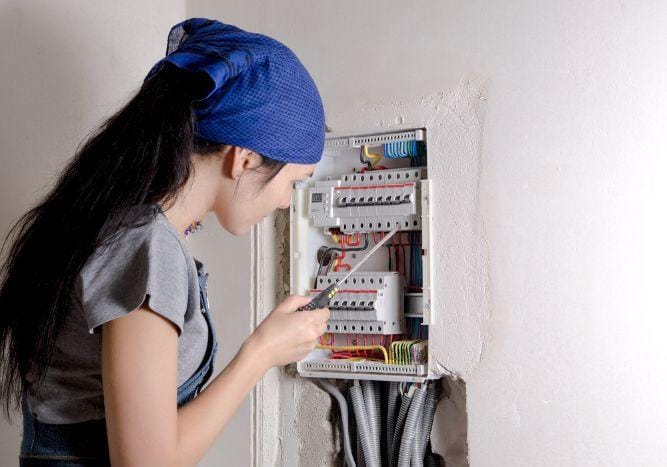

You’re a do-it-yourselfer—the kind of person who will build a new bedroom, pave a new driveway, or, dare we say it, run their own electrical wiring to new fixtures or outlets.
We always recommend you hire a professional electrician for any electrical work—the risk to your health and home when playing with your electrical system goes way beyond a simple electrical shock. You could fry your whole electrical system, and you’re risking serious harm.
With that said, we know that some of you will still insist on rewiring things on your own—you’ve got the power tools you need, and you feel like your skill level is high enough that you can successfully rewire your home.
That’s why we’ve written this article; it features electrical safety tips and the dos and don’ts of DIY. Let’s dive right in!
The government here in Winnipeg has created an electrical installation homeowner’s guide—the Government of Manitoba has created a similar set of guidelines for everyone outside the city.
We’re assuming most of our readers live in the area, but Google can be weird—if you live outside of Manitoba, find your own local guidelines. Follow them carefully—they’ll keep you safe.
This might be one of the most obvious electrical safety tips, but it’s worth making it as clear as possible:
By keeping everything dry, you can avoid serious accidents, including serious electric shock. Keep you and your family safe—water and electricity don’t mix!
In spaces where water and electricity are likely to mix (in the bathroom, near sinks, and the like)—install Ground Fault Circuit Interrupters (GFCIs). These outlets will automatically shut off when a change in flow is detected to prevent electrocution.
Installing a new electrical outlet or light fixture takes a thorough understanding of your home’s electrical system. You want to ensure that you’re not overloading the circuit breaker and that you’re working with the right wires.
Take a look (or create) diagrams of your home’s existing system, then carefully plan where you’ll install your new outlet or fixture. This is an absolute “measure twice, cut once” scenario—you want to be sure you won’t be cutting into any existing wires or plumbing.
There’s a reason it takes years of school and practice to become a licensed electrician—this work isn’t easy, and it can pose serious risks. Working as an electrician goes well beyond the basic precautions we can lay out here—you need to be able to predict electrical problems and prevent potential accidents, including electrical fires.
That’s why we can’t go into thorough detail here—we don’t want to encourage anyone who isn’t licensed to wire their own electricity at home. Our advice to you is to hire an electrician—we’ve got electrical contractors in Winnipeg who can help you today. At the very least, call us for a consultation—we can help keep you, your home, and your family safe.